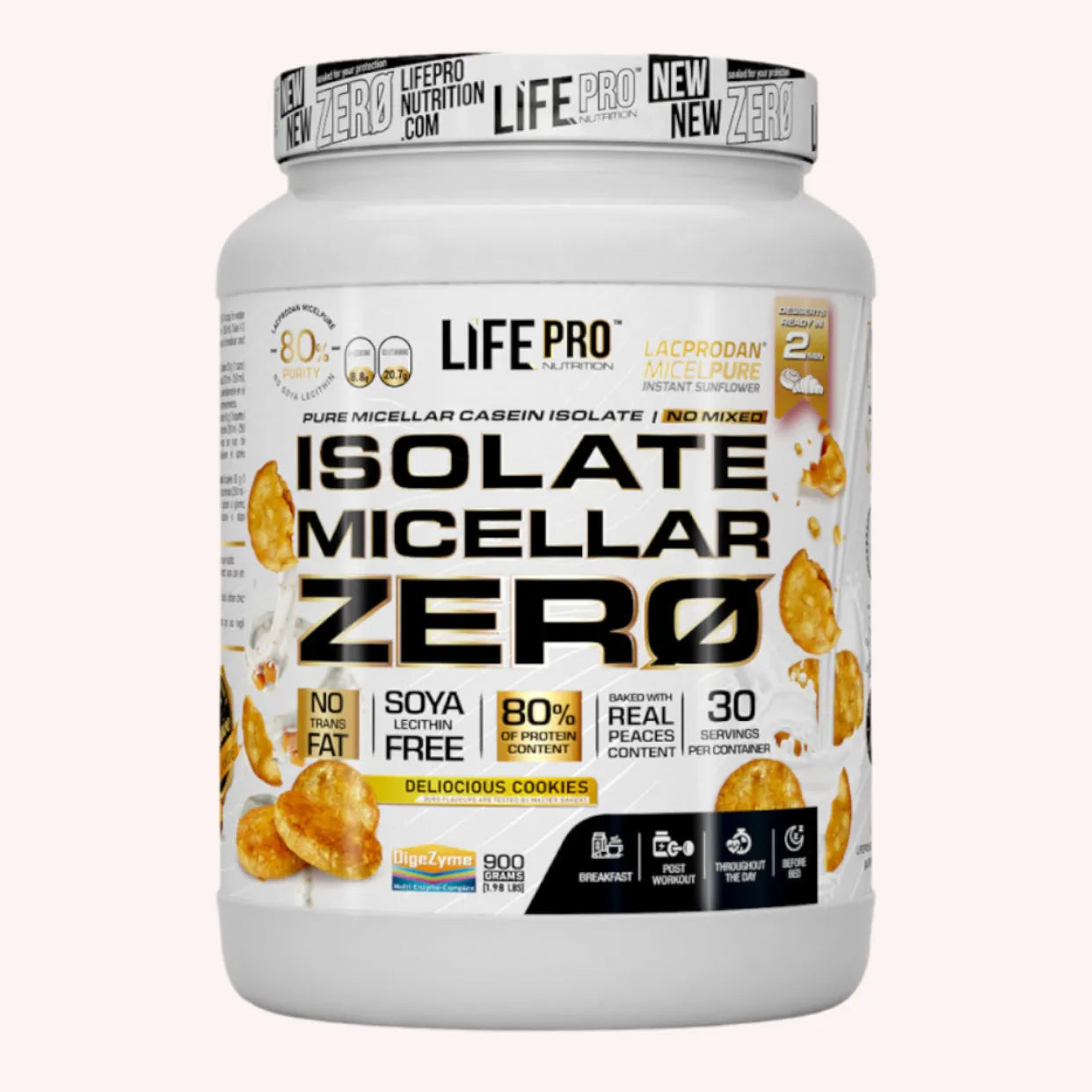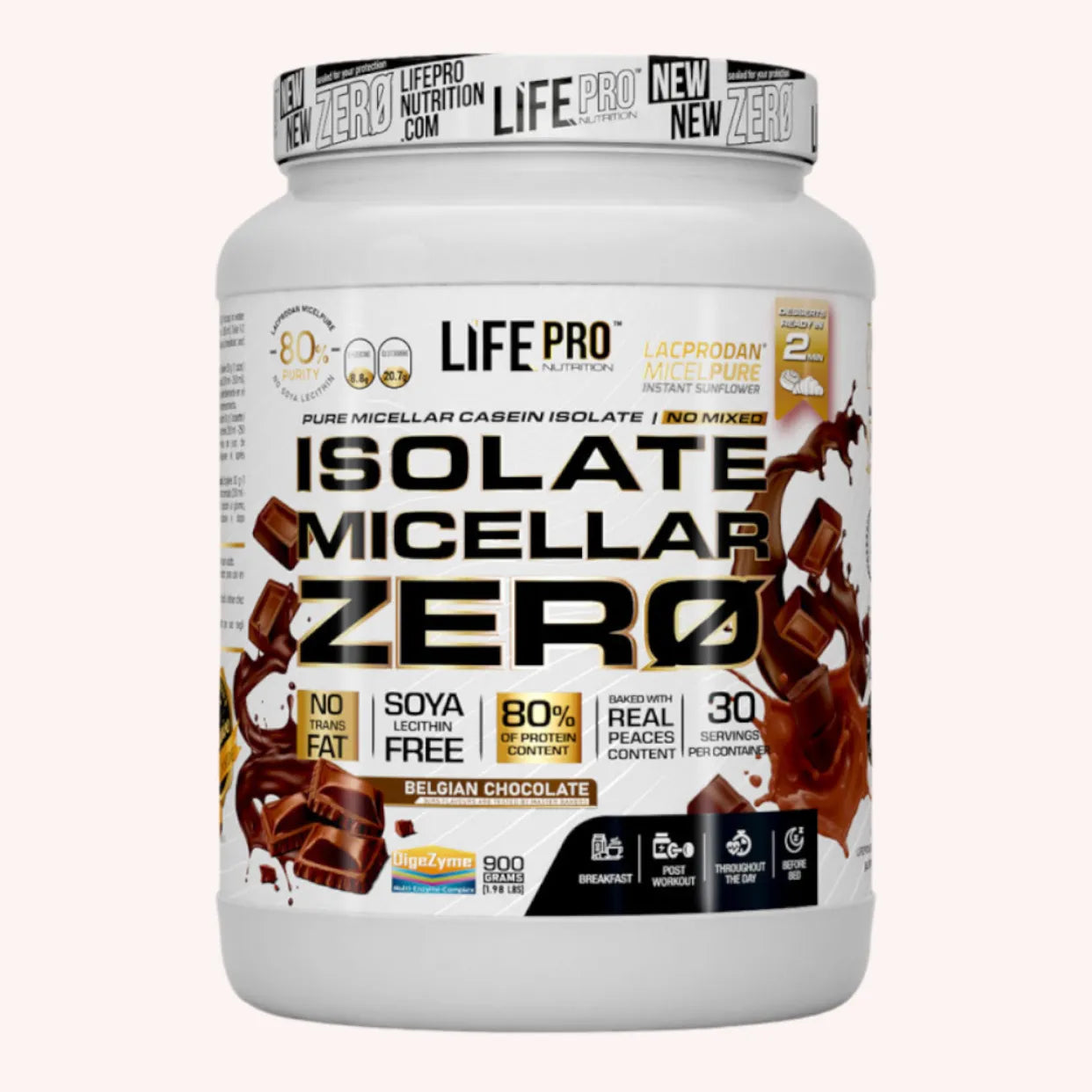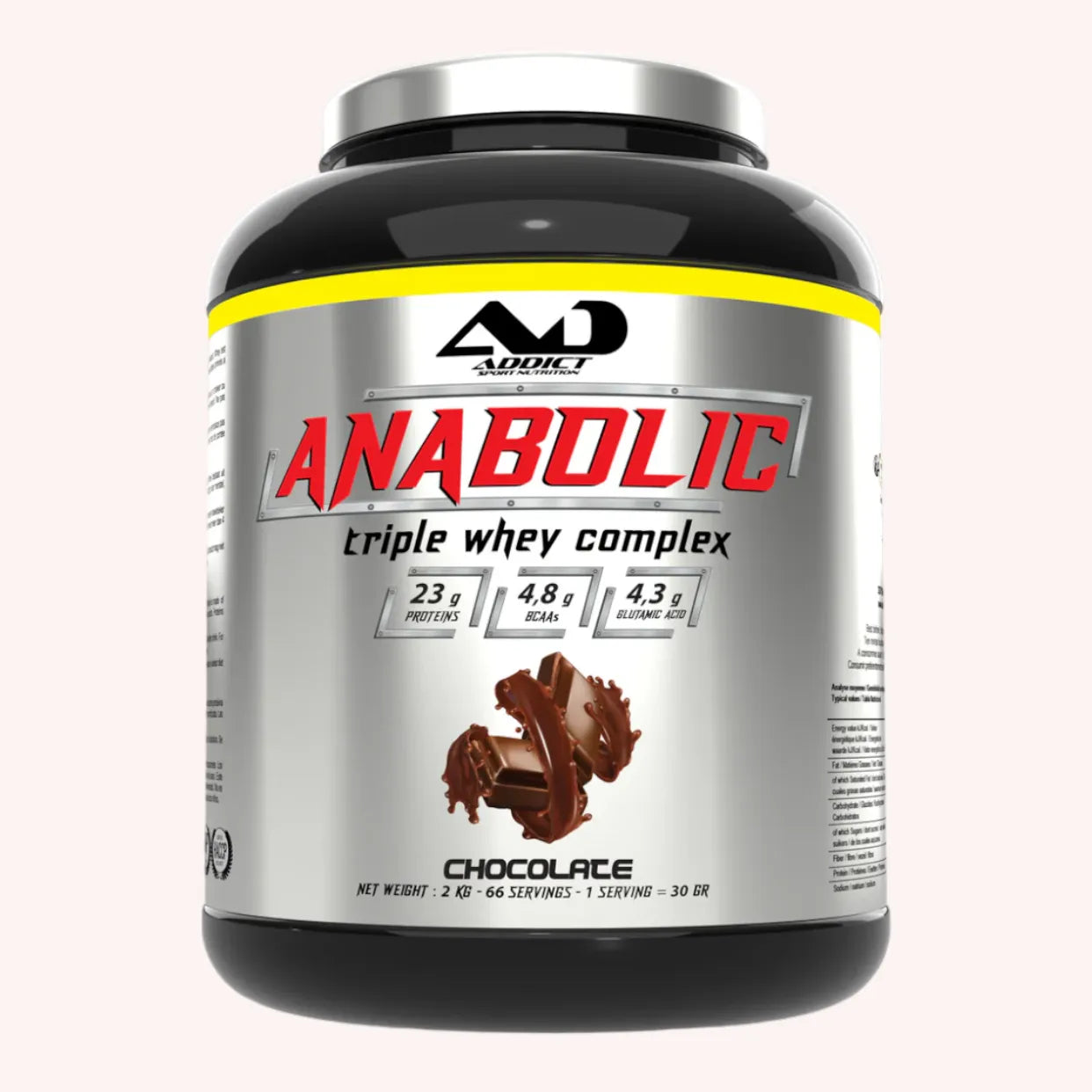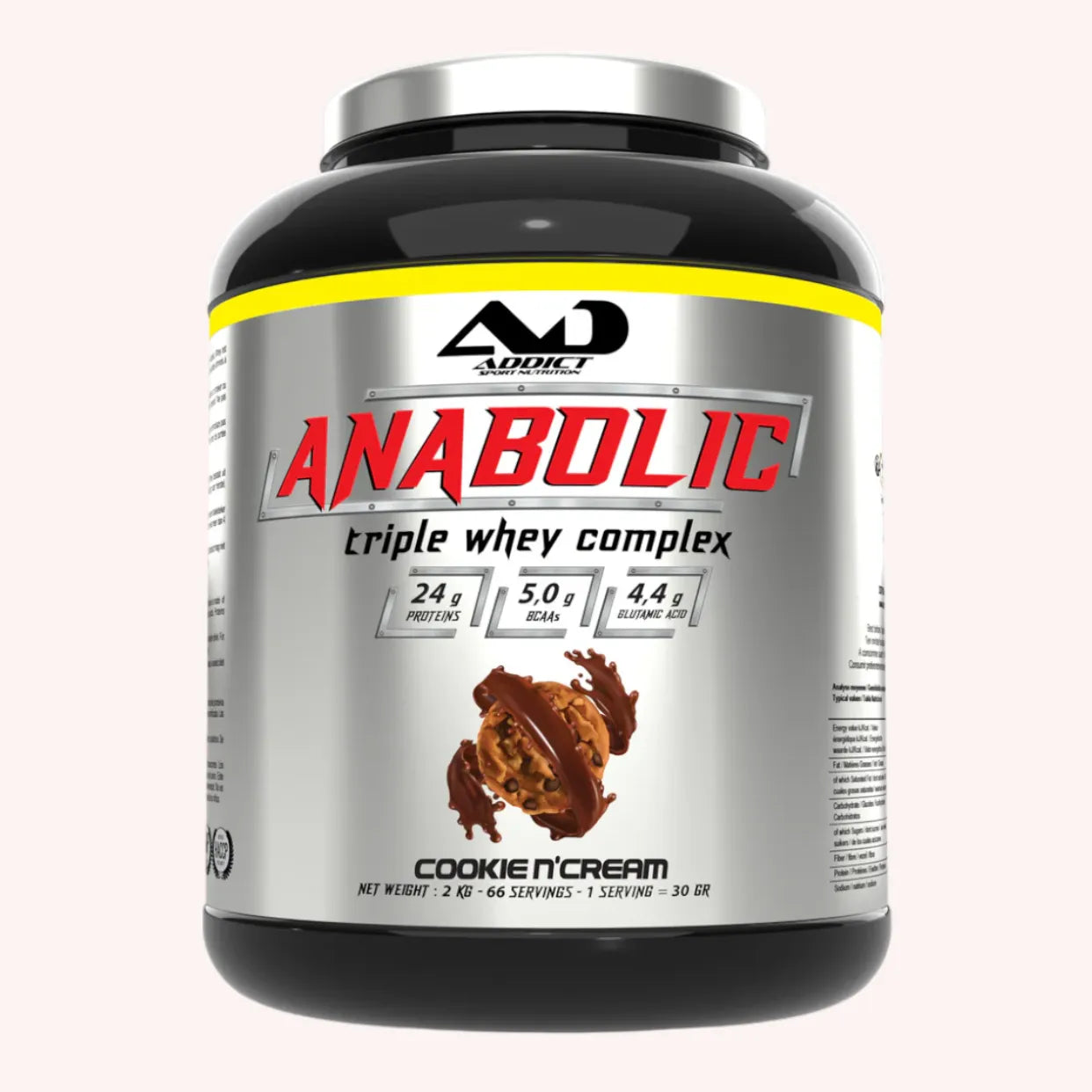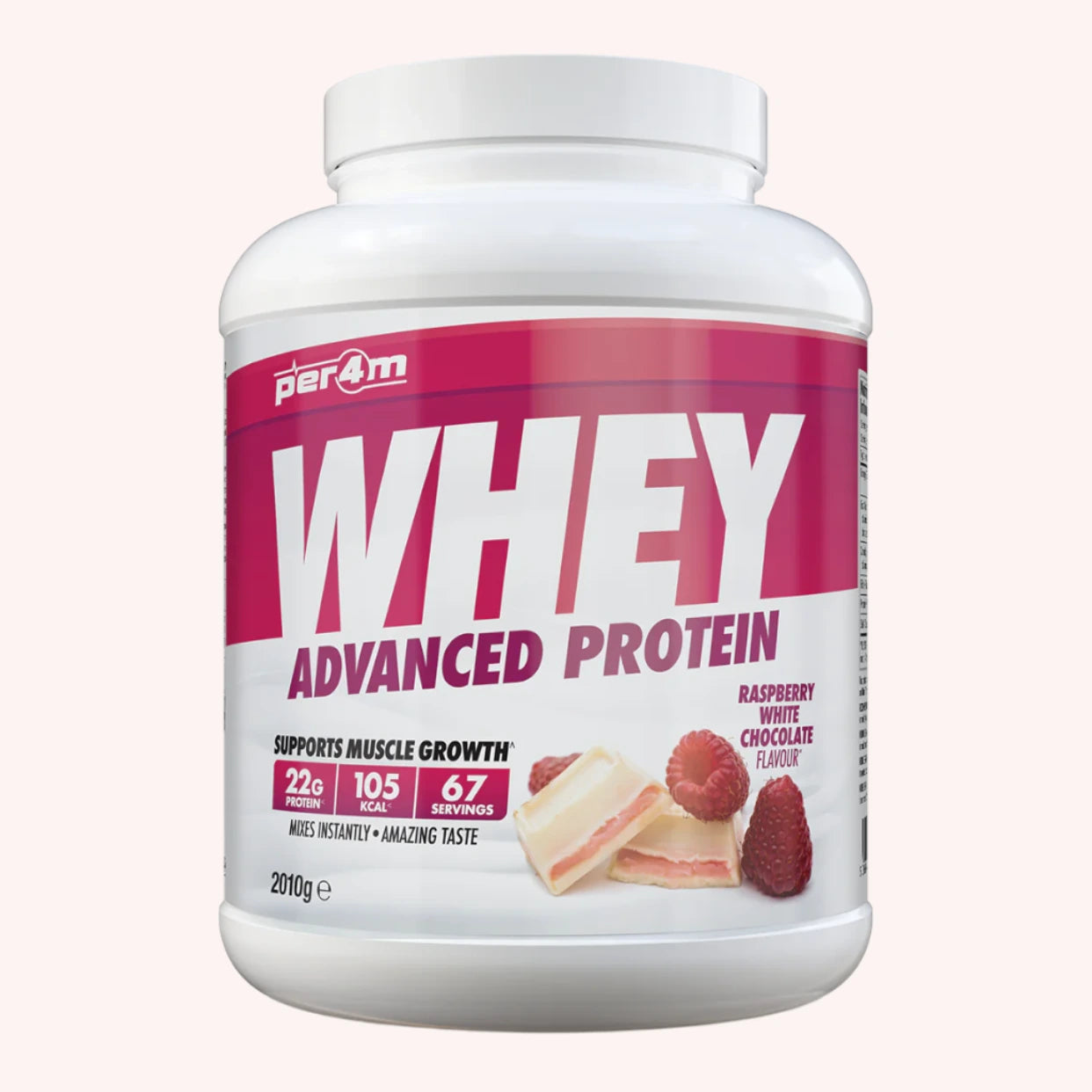In the world of fitness and bodybuilding, protein powders have become essential. Among them, two stand out in particular: Casein and whey . Although they are both derived from milk, they have marked differences in terms of digestion, effects on performance, and ideal time of consumption.
Here, we'll explore both types of proteins in depth to help you determine which one best fits your needs and goals.
Characteristics of casein
Casein makes up about 80% of the protein in milk. It is known for its slow digestion, making it a time-release protein powder that is very useful for maintaining a constant supply of amino acids over several hours.
Slow digestion and satiating effect
Unlike whey , which is quickly digested, casein powder forms a gel in the stomach, slowing the release of amino acids into the bloodstream. This means that muscles receive a supply of nutrients for an extended period of time, often up to seven hours after consumption. This process is particularly beneficial for preventing muscle breakdown, especially during times when the body is not receiving food, such as during sleep.
Additionally, this slow digestion results in a satiating effect. This makes casein a great choice for those looking to control their appetite or avoid cravings between meals. By providing a prolonged feeling of fullness, it can help reduce calorie intake and manage weight loss diets.
Support for muscle recovery and growth
Casein, because of its sustained release, is often recommended before bed. During the night, the body is in a fasting phase, and without nutritional intake, muscles can be prone to catabolism, or muscle breakdown. Consuming casein therefore helps provide muscles with the amino acids they need to repair and grow during this resting period. As such, it is ideal for those looking to optimize their muscle recovery over the long term.
The properties of whey
Whey, also called lactoserum, is a fast-digesting protein. It is often preferred after training because it allows for rapid assimilation of amino acids, which promotes immediate muscle recovery after intense exercise.
Rapid digestion and stimulation of protein synthesis
You may be wondering what is whey protein used for? Whey protein is known for its ability to be quickly absorbed by the body. Once consumed, its amino acids, especially BCAAs (branched-chain amino acids) such as leucine, are quickly available to the muscles. This effectively stimulates muscle protein synthesis, a process essential for repairing muscle fibers damaged during training.
Its fast action makes whey an ideal supplement to consume immediately after a workout. Not only does it quickly restore energy levels, but it also provides muscles with the nutrients they need to begin the process of recovery and muscle growth .
Rich in essential amino acids
Whey is a complete protein, meaning it contains all the essential amino acids needed for muscle growth and repair. In particular, it is rich in leucine, the amino acid responsible for activating protein synthesis. This makes it very effective in promoting rapid muscle gain and improving recovery after intense training.
Casein or Whey: How to choose?

Choosing between casein and whey depends on several factors, including your goals, your training pace, and when you consume your protein supplement.
Choose casein for sustained protein release
If your goal is to maintain protein intake over a long period of time, such as during the night, casein is the ideal choice. Its gradual release of amino acids allows muscles to be fed continuously, which is particularly useful for avoiding muscle catabolism during sleep. In addition, its satiating effect makes it suitable for those looking to control their appetite, especially as part of a low-calorie diet.
Choose whey for a quick response after exercise
The first question to ask yourself is when to take whey? If you are looking to maximize your immediate recovery after a workout, whey will be more suitable. Its rapid digestion and high concentration of BCAAs help stimulate muscle protein synthesis and quickly repair fibers damaged by exercise. Whey is therefore ideal to consume within 30 minutes after a workout, often considered the "anabolic window", a period during which the body is particularly receptive to nutrients.
Knowing how many whey shakes to consume per day depends mainly on your protein needs, your daily diet and your level of physical activity, but it is generally recommended not to exceed 2 to 3 shakes to avoid unnecessary excess.
Combine casein and whey for optimal protein intake
To maximize your results, you may also want to consider combining whey and casein into your nutrition routine. For example, consume whey right after your workout for a quick recovery, and then casein before bed for a sustained release of protein throughout the night. This combined approach allows you to reap the benefits of both proteins, optimizing both immediate recovery and prolonged muscle nutrition.
Advantages and disadvantages of whey
Benefits of whey
- Fast absorption: Ideal for quick recovery after training.
- Rich in BCAA: Promotes immediate protein synthesis , essential for muscle growth .
- Versatility: Can be consumed at various times of the day, especially before or after training.
Disadvantages of whey
- Fast absorption: While beneficial right after training, whey does not provide a sustained supply of protein, which limits its effectiveness during fasting periods, such as overnight.
- Digestive issues: Some people may have difficulty digesting whey, particularly those who are lactose intolerant, although isolated versions are often easier to tolerate.
Advantages and disadvantages of casein
Benefits of Casein
- Sustained release of amino acids: Ideal for feeding muscles over a long period of time, especially during sleep.
- Satiating effect: Helps reduce cravings and control appetite, which is beneficial as part of a weight loss diet.
Disadvantages of casein
- Slow absorption: It is not suitable for quick recovery after training.
- Thick Texture: Some users may not appreciate the heavier consistency of casein, especially when consumed in large quantities.
Whey or Casein: Which Protein is Right for You?
If you are looking for a quick recovery after training and need an immediate source of protein, whey will probably be your best option. On the other hand, if your goal is to maintain a prolonged protein intake, such as overnight or between meals, casein is a better choice.
In most cases, it can be beneficial to incorporate both types of protein into your routine. Using whey after training and casein before bed will allow you to benefit from the unique benefits of each protein and maximize both muscle growth and recovery .
Casein and whey are both proteins derived from milk, but they have very different characteristics. Whey, with its rapid digestion, is ideal for immediate recovery after training, while casein, with its slow digestion, is perfect for providing a prolonged release of amino acids.
Depending on your goals, you can opt for one or the other, or combine the two for a complete muscle nutrition strategy.
Sources:
- Davies RW, Carson BP, Jakeman PM. The Effect of Whey Protein Supplementation on the Temporal Recovery of Muscle Function Following Resistance Training: A Systematic Review and Meta-Analysis. Nutrients. 2018 Feb 16;10(2):221. : https://pubmed.ncbi.nlm.nih.gov/29462923/
- Nasimi N, Sohrabi Z, Nunes EA, et al. Whey Protein Supplementation with or without Vitamin D on Sarcopenia-Related Measures: A Systematic Review and Meta-Analysis. Adv Nutr. 2023 Jul;14(4):762-773. : https://pubmed.ncbi.nlm.nih.gov/37196876/
- Baba WN, McClements DJ, Maqsood S. Whey protein - polyphenol conjugates and complexes: Production, characterization, and applications. Food Chem. 2021 Dec 15;365:130455. : https://pubmed.ncbi.nlm.nih.gov/34237568/
- Miller MJ, Witherly SA, Clark DA. “Casein: a milk protein with diverse biological consequences.” Proc Soc Exp Biol Med. : https://pubmed.ncbi.nlm.nih.gov/2236098/
- Tang JE, Moore DR, Kujbida GW, Tarnopolsky MA, Phillips SM. "Ingestion of whey hydrolyzate, casein, or soy protein isolate : effects on mixed muscle protein synthesis." J Appl Physiol. : https://pubmed.ncbi.nlm.nih.gov/19589961/
- Kim J. “Pre-sleep casein protein ingestion: new paradigm in post-exercise recovery nutrition.” Phys Act Nutr. : https://pubmed.ncbi.nlm.nih.gov/32698256/





